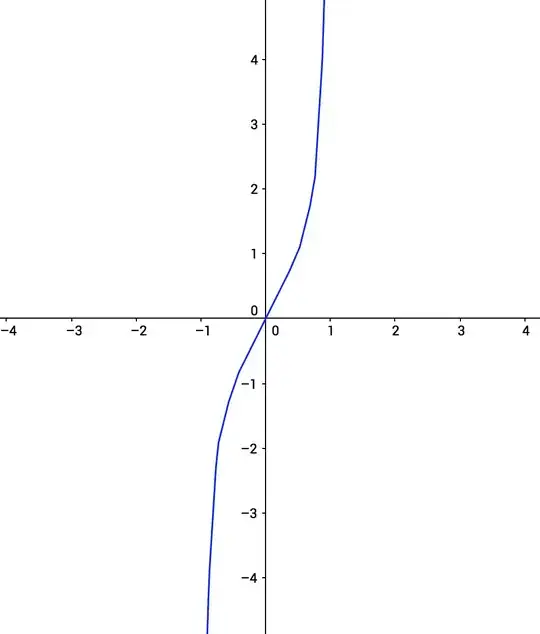I want to prove that every open interval has the same cardinality of R.
I've proved that $|(a,b)|=|(c,d)|$ so I may find a bijection $f: (a,b) \to (c,d)$.
I need a bijection $f: (c,d) \to \Bbb R$ (a bijection defined by an interval to $\Bbb R$) The problem is that the only function like this that I know is tan(x) that is bijective in ($- \pi/2, \pi/2)$ but I am not allowed to use trigonometric functions.
Does anybody know another function like this?
